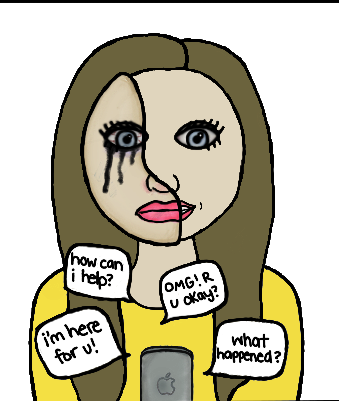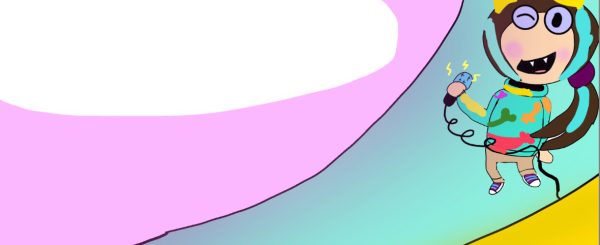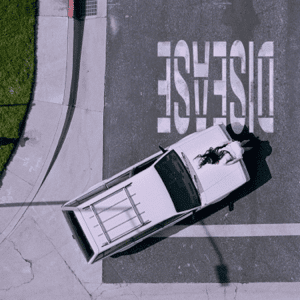Finding experts who know the difference is the first step toward helping yourself recover
There’s being depressed, and then there’s clinical depression.
Junior Ethan Vogin does not believe that true clinical depression is rampant on social media. He sees it more as a plea for attention: “It’s give me attention depression,” he said. Real depression is the chronic feeling of “hopelessness, emptiness . . . loneliness. It’s something more than just being sad over one thing, it’s a long term illness.”
Over the course of the last couple years, a light has shined on the difficulties of living with mental illness. The United States has seen a rise in the discussion of mental illness, leading to a sense of normalcy.
However, with widespread attention comes widespread miscommunication.
Despite becoming normalized, the true potency and importance of mental illness has become diluted; words like depression or anxiety are thrown around like they are just feelings. In reality, depression and anxiety are truly debilitating disorders.
The National Institute of Mental Health defines depression as “a common but serious mood disorder. It causes severe symptoms that affect how you feel, think, and handle daily activities, such as sleeping, eating, or working.”
Thanks to the media, most are aware of the implications and symptoms of depression.
Junior Mackenzie Robinson said depression is “a chemical imbalance in the brain that causes a lack of happiness, feelings of sadness, unworthiness.”
Junior Celeste LeBold believes depression causes someone to lose interest in things they once found important. “And feeling sad or alone even when with people who care about you,” she said.
Senior Amanda Khalil defines depression as chronic sadness or numbness and the lack of motivation to do basic tasks.
Despite knowing the symptoms of depression, people still need to learn to view depression with the serious attention it requires.
Clinical psychologist Dr. John Monopoli specializes in the study of depression. “Depression is associated with sadness, it’s a sadness that is so deep that it’s debilitating. It affects self esteem, appetite, people overeat or undereat, it affects sleep, you oversleep or undersleep,” he said. “It has physical consequences and obviously psychological consequences. People get slowed down. It’s hard to process, it’s hard to comprehend difficult problems sometimes.”
Although knowing the difficulties of living with depression, people still ignore the seriousness of the matter.
Diagnosed with depression himself, Junior Eric Wolf believes that people who pretend to be depressed ironically do so to fit in.
“They feel like it’s kind of like a bandwagon, especially with so many people having it nowadays and they want to make it normalized, which it’s not, and people who don’t have depression don’t understand,” Wolf said. “The way it feels to struggle getting up everyday, to struggle getting out of bed, doing basic kind of activities like doing laundry, cleaning something, like everything and everything becomes a challenge.”
Ethan Vogin agreed with this “fake depression.” Like it’s a part of society to be “depressed.”
“People are like oh I’m sad I must be depressed,” he said. “No you’re just sad. If you go to sleep sad and wake up happy you’re not depressed.”
Dr. Monopoli agreed when he said, “People don’t really realize the distinction between sadness and clinical depression because it’s so much of a vernacular now. It’s a distinct set of conditions and characteristics that someone needs to actually be depressed.”
To simply express feelings of distress, people say they have depression, anxiety, or panic attacks. LeBold said a lot of people say they have panic attacks, “but it doesn’t seem like an actual defined, like, shaking and stuff, they just look a little stressed.”
Although sadness and depression may manifest in similar symptoms, Dr. Monopoli explained how depression is “when the fabric of their life is disrupted. In other words, when going to work or to school is no longer possible. They no longer can be efficient with their life anymore. The greater the impact, what you are looking at is no longer sadness, but actually clinical depression.”







